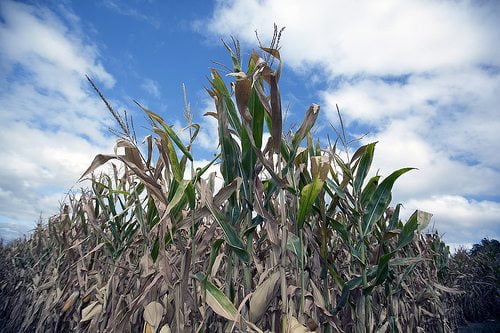

Economy
UNEP: area ‘size of Brazil’ under threat from unsustainable land use
An area of land the size of Brazil is threatened with degradation, if the world’s current unsustainable land use continues, according to a new major report by the United Nations Environment Programme (UNEP).
The study, Assessing Global Land Use: Balancing Consumption with Sustainable Supply, was carried out by the International Resource Panel and was launched in Friday at the World Economic Forum in Davos.
It found that there had been a sharp rise in the development of agricultural land, at the cost of forests and wetlands, in order to feed rising local populations.
The report says Europe’s land use must be cut by around a third, a factor which campaigners say indicates that developed countries are taking more than their “fair share” in the planet’s ecosystems.
Achim Steiner, UN under-secretary-general and UNEP executive director, said, “The findings of the International Resource Panel show that the world has witnessed an unprecedented sharp decline in terrestrial ecosystem services and functions during the past decades. Forests and wetlands have been converted to agricultural land to feed growing populations but at a cost that is not sustainable.
“Recognising that land is a finite resource, we need to become more efficient in the ways we produce, supply and consume our land-based products. We must be able to define and adhere to the boundaries within which the world can safely operate to save millions of hectares by 2050.”
He added,“Recommendations from the report are meant to inform policy and contribute to on-going discussions on targets and indicators for sustainable resources management as the world charts a new course for sustainable development post-2015.”
Commenting on the report, Friends of the Earth’s senior resource use campaigner Michael Warhurst said it “makes clear that business as usual is not an option – rising populations and demand for land to grow food and biofuels is pushing up prices and destroying wildlife.”
Warhurst added, “It’s clear that developed nations are taking more than our fair share of the world’s available land. To cut Europe’s land use by a third, as the report says is necessary, we need to reduce our consumption of meat and dairy products and not use more land for biofuels or biomass.
“Eating less and better meat will help people stay healthier and save money, as well as cutting our land footprint.”
Further reading:
52% of global population to live in ‘water-stressed areas’ by 2050
New ‘toolkit’ puts value on ecosystems
EU decision to cap biofuel use criticised by industry
Cutting back deforestation will save coral reefs
Encouraging pension funds to divest from land grabbing activities


 Environment12 months ago
Environment12 months agoAre Polymer Banknotes: an Eco-Friendly Trend or a Groundswell?

 Features11 months ago
Features11 months agoEco-Friendly Cryptocurrencies: Sustainable Investment Choices

 Features12 months ago
Features12 months agoEco-Friendly Crypto Traders Must Find the Right Exchange

 Energy11 months ago
Energy11 months agoThe Growing Role of Solar Panels in Ireland’s Energy Future
















